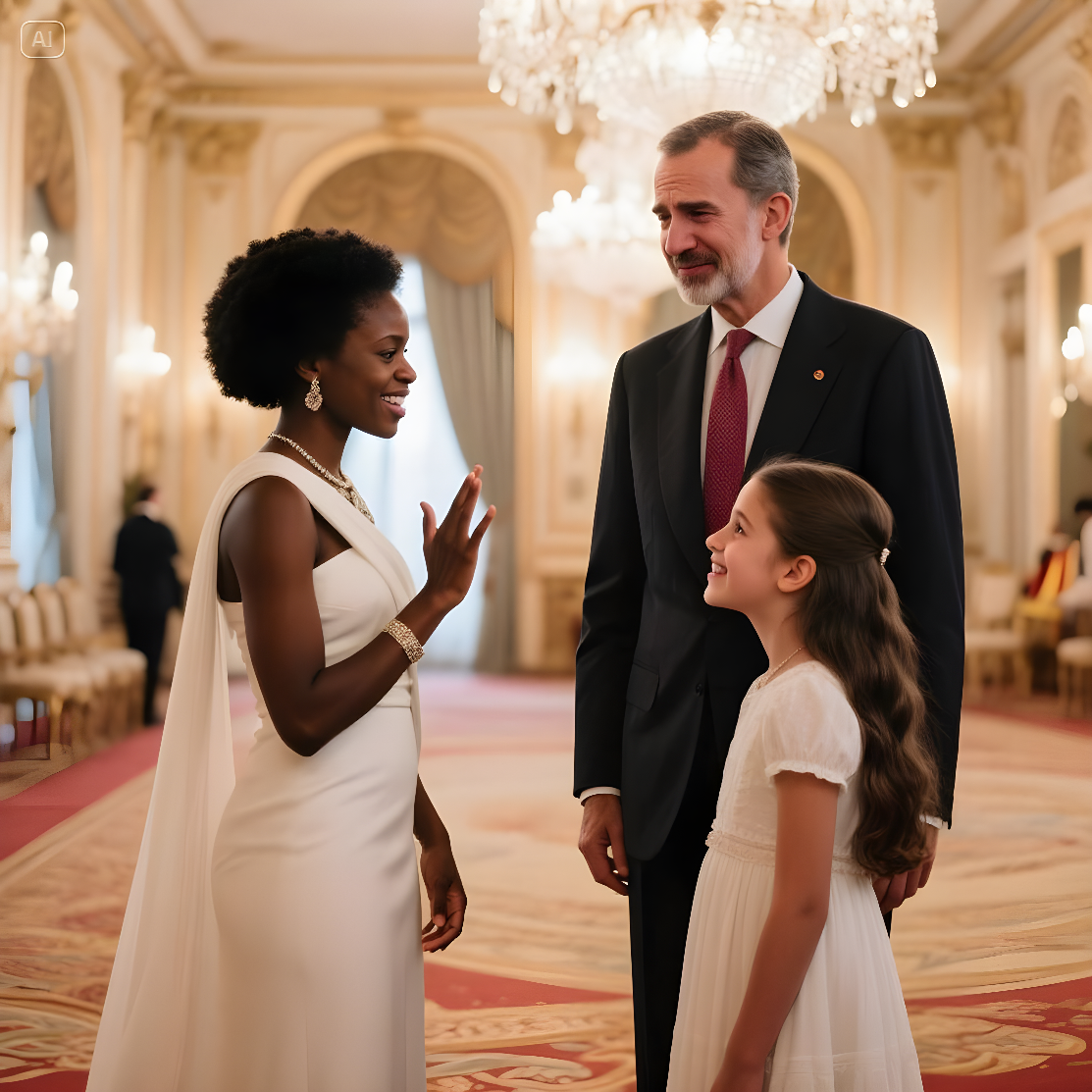A Night of Illusion and Reality
In the grand ballroom of the Palace Hotel, chandeliers glittered like captured stars above Madrid’s elite. Crystal glasses chimed, laughter floated over the plush carpets, and every nook hummed with cultured ambition. I stood by the back wall, invisible in my simple black cocktail dress, the sole formal outfit I owned. At twenty-eight, my purpose was not to network or gain attention but to serve as an interpreter for Spanish Sign Language, hired for the Charity Gala at the Niño Jesús University Children’s Hospital.
My agency had given me clear instructions: “Be inconspicuous and be ready if needed.”
Up until that moment, no one had required my assistance.
I adjusted my earpiece and scanned the room. Politicians, CEOs, and philanthropists mingled under the refracted light, while waiters weaved through the crowd offering champagne and hors d’oeuvres that I couldn’t pronounce. Suddenly, in a distant corner, something caught my breath.
A teenage girl, probably around sixteen, partially concealed behind a marble column. Her navy blue dress shimmered under the chandeliers, and her hair was neatly braided. Despite the surrounding glitter and opulence, she appeared utterly isolated.
The way her eyes traced the movements of others’ lips — observantly and analytically — resonated with me instantly.
She was hard of hearing. And no one was engaging with her.
Empathy surged in my chest. I had witnessed this before: the solitude of silence in a room full of voices. I contemplated approaching her, but just as I gathered the courage, a wave of excitement rippled through the crowd.
The evening’s guest of honor had arrived.
Javier Prieto, the billionaire founder of Prieto Innovations, strode into the hall surrounded by flashing cameras and admiration. Tall, with silver hair, impeccably dressed, he exuded authority — the kind of presence that silences rooms. His company had generously donated millions for the hospital’s new wing. That night, he was the hero everyone wanted to orbit around.
Cameramen shouted his name. Donors rushed forward to shake his hand.
And amidst all that glamour, his daughter—the girl in blue—went unnoticed.
Of course, I thought. Who else could it be?
The resemblance was undeniable: the same strong jawline, the same quiet intensity. Yet, while his father commanded the spotlight, she remained concealed in the shadows.
Taking a deep breath to steady myself, I crossed the ballroom floor.
Upon reaching her, I smiled gently and began to sign.
“Hello. I’m Marina. What’s your name?”
For a moment, disbelief flickered across her face, followed by blossoming joy. Her entire expression transformed.
“Olivia,” she signed hurriedly. “Do you know LSE?”
“I’m an interpreter,” I replied. “I sometimes work with the children’s hospital.”
“The one my father has donated to.” Olivia’s lips formed the words more than her hands signed them. Then, her shoulders slumped in a small, rehearsed gesture. “I’m supposed to stay here and look pretty for photos later.”
The bitterness behind those words ran deeper than their mere meaning.
“Until then,” I signed. “Would you like someone to actually talk to you?”
Her silent laughter radiated. “Oh, yes!
